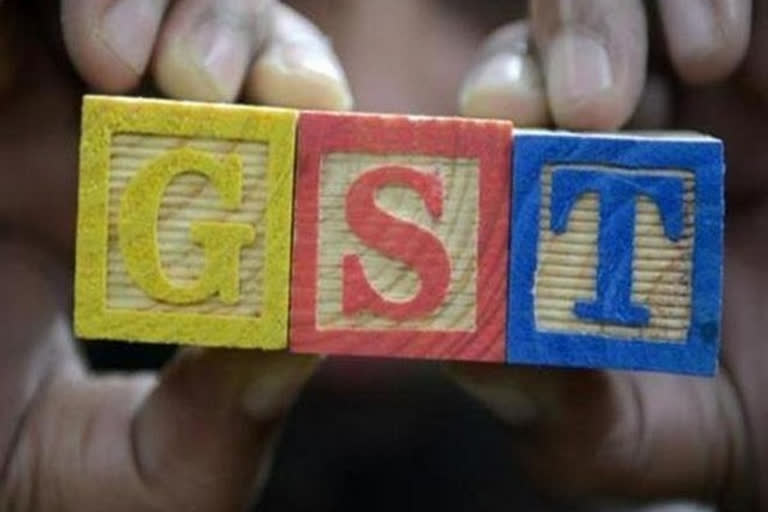New Delhi: In a big relief for finance minister Nirmala Sitharaman, who was grappling with the issue of unpaid GST Compensation dues to States, as many as 21 states have preferred the first borrowing option to meet the shortfall in their revenue collection in the current financial year, ETV Bharat has learnt.
According to sources in the ministry of finance, Andhra Pradesh, Arunachal Pradesh, Assam, Bihar, Goa, Gujarat, Haryana, Himachal Pradesh, Jammu & Kashmir, Karnataka, Madhya Pradesh, Manipur, Meghalaya, Mizoram, Nagaland, Odisha, Puducherry, Sikkim, Tripura, Uttarakhand and Uttar Pradesh have opted the first of the two loan options offered by the Centre.
Under the first option, the Centre will open a special loan window in consultation with the Reserve Bank of India, through which States could collectively borrow a total amount of Rs 97,000 crores to meet the shortfall in their revenue collection in this fiscal.
According to an estimate prepared by the finance ministry, this year there will be a gap of nearly Rs 3 lakh crore in the revenue collection of States and the GST Cess, which is levied to meet this shortfall, will only account for Rs 67,000 crores, leaving a massive gap of Rs 2.33 lakh crores.
The Centre's estimate suggests that out of this amount of Rs 2.33 lakh crore, only Rs 97,000 crore shortfall is attributable to the implementation of GST in July 2017 and the rest is attributable to other factors, including the adverse economic impact of Covid-19 global pandemic.
Under the first option, the Centre offered to pay the principal as well as interest on the loans taken by States by extending the collection of GST cess on demerit and luxury items beyond the transition period of five years.
Under the second option, where States can collectively borrow up to Rs 2.33 lakh crores, the Centre has promised to pay principal while States will have to pay the interest from their own resources.
READ: Markets extend losses despite RIL show; bank stocks weigh
A source in the finance ministry told ETV Bharat that only Manipur had opted for the second option but later the north eastern state also opted for the first option.
“A few more states are, also, to give their borrowing option in a day or two,” a source in the ministry of finance told ETV Bharat.
He, however, confirmed some of the opposition rules states such as Jharkhand, Kerala, Maharashtra, NCT of Delhi, Punjab, Rajasthan, Telangana, and West Bengal are yet to respond to the GST Council proposal to decide their options.
Tamil Nadu is also yet to respond to the Centre’s proposal to borrow money to meet shortfall in their revenue collection.
Under the GST (Compensation to States) Act of 2017, the Centre is legally obliged to meet any revenue shortfall in the revenue collection of States for a transition period of five years that will end in June 2022.
States agreed to subsume 17 taxes levied by them in a common, nationwide goods and services tax on the Centre’s constitutionally guaranteed promise that it will compensate any loss in their revenue collection for a period of five years. The amount of compensation is calculated by assuming 14% annual growth in a State’s revenue collection by taking FY 2015-16 as the base year.
However, this year, due to a combination of several factors, including the adverse economic impact of Covid-19 lockdown measures, the Centre is not able to pay over Rs 1.51 crore as GST Compensation dues to States that have become due in the first four months of this fiscal.



